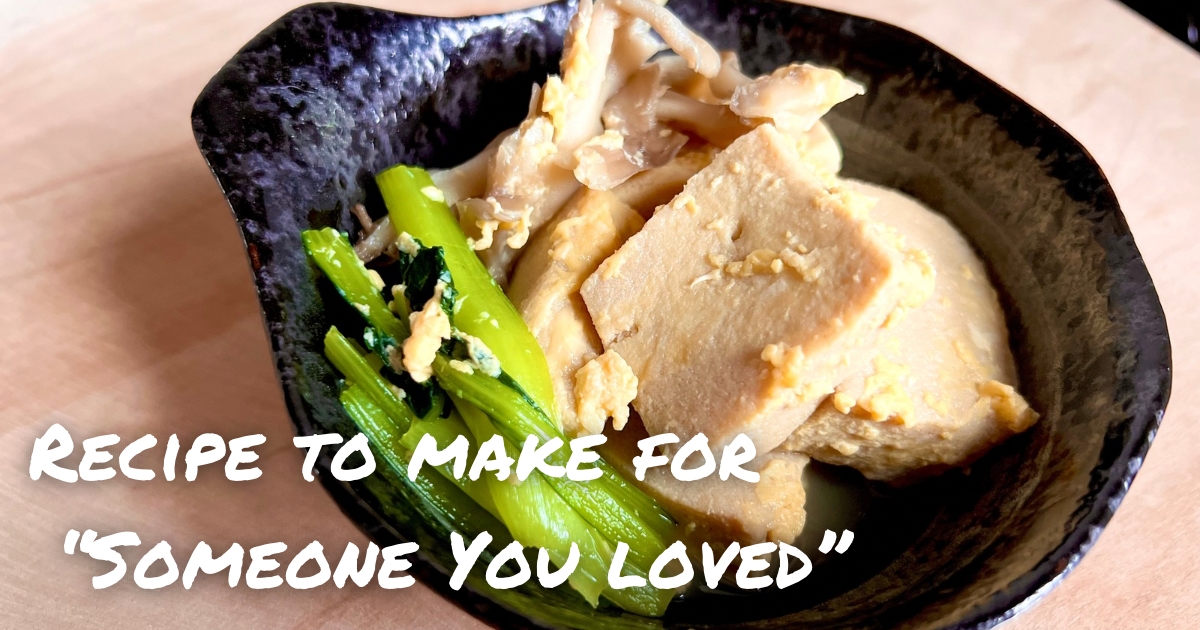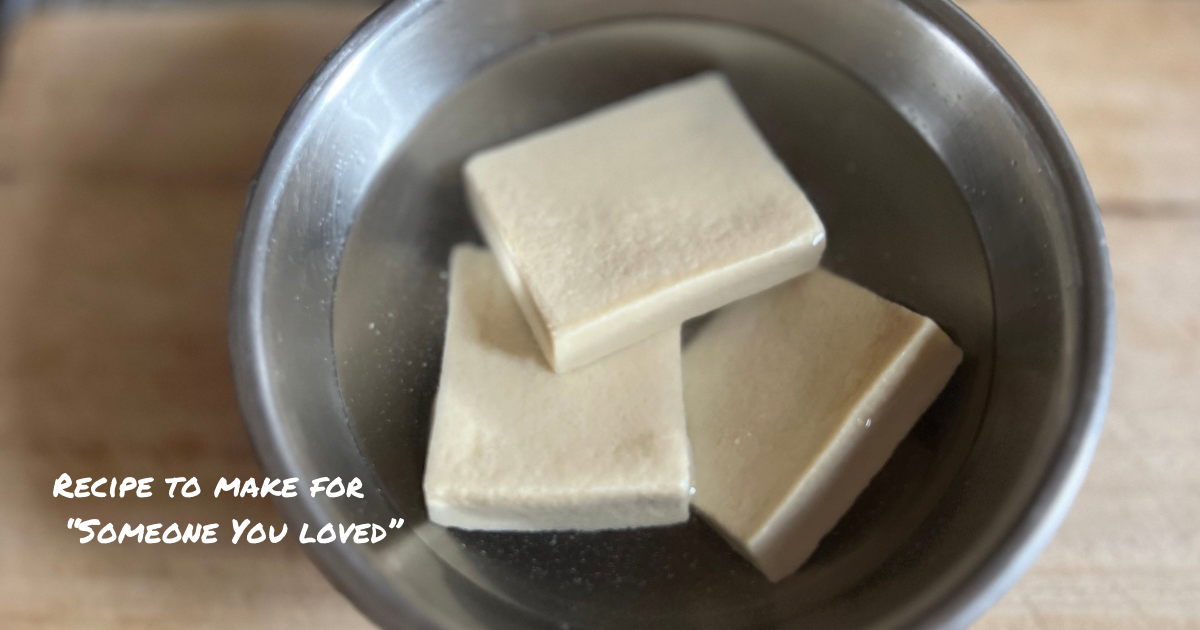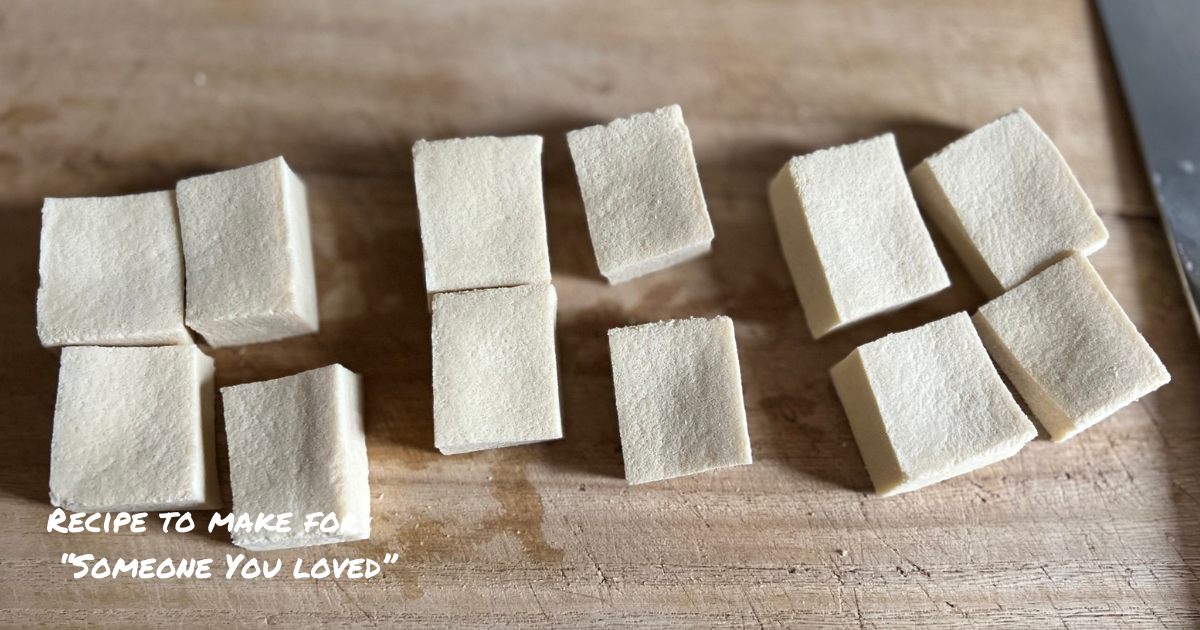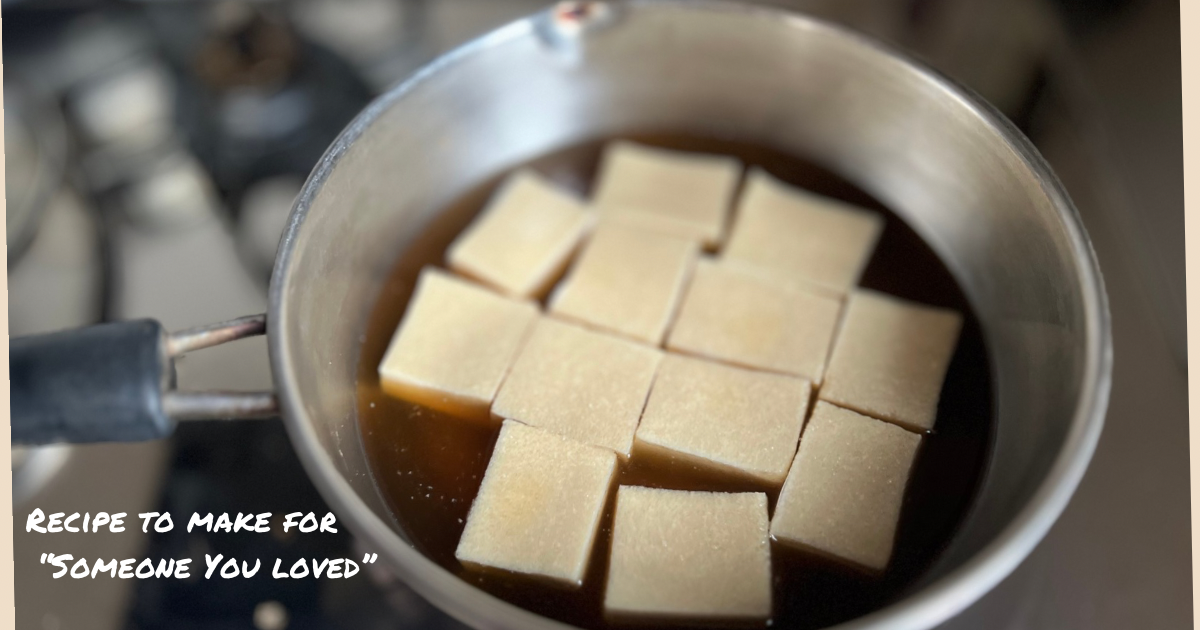
今日は乾物。高野豆腐を久しぶりに食べる。よく見たら高野豆腐って高タンパク低糖質って、忘れていたすごい食材。 最後に卵でとじて、優しい味に。
材料 3人分
高野豆腐 3枚
*水 350cc
*和風顆粒だし 小さじ1/2
*砂糖 大さじ2とひとつまみ
*みりん 大さじ1
*しょうゆ 小さじ1と1/2
*塩 少々
卵
まいたけ
小松菜
作り方
高野豆腐をたっぷりの水(分量外)に入れて、1分放置
(水を吸収すると少しサイズが大きくなる)
 高野豆腐を手でギュッと軽く絞り水分を取り除き、4分割にする
高野豆腐を手でギュッと軽く絞り水分を取り除き、4分割にする
 鍋に*調味料を入れて沸騰させる
鍋に*調味料を入れて沸騰させる
沸騰したら高野豆腐を入れて蓋をして中火で煮込む。
 小松菜を4cmくらいに切り別の鍋で熱湯2-3分下茹でして水気をとる。
小松菜を4cmくらいに切り別の鍋で熱湯2-3分下茹でして水気をとる。
調味料液が鍋の1/2くらいになったら、まいたけと下茹でした小松菜を高野豆腐の鍋に加える。さらに煮込む
水分が1/3くらいになったら、溶き卵を加える。一呼吸おいて大きく一回かき混ぜて完成
小松菜は下茹でしたあと、高野豆腐とは一緒に煮込まずに盛り付けの時に添えても良い。
|
|
Translation
Simmered Koya Tofu – A High-Protein Comfort Dish
Today’s focus is on kanbutsu—Japanese dried foods. It’s been a while since I had koya tofu, and wow, I forgot how amazing it is! High in protein, low in carbs… it’s truly an underrated superfood.
Ingredients (Serves 3 )
3 pieces of koya (freeze-dried) tofu
*350ml water
*1/2 tsp Japanese dashi granules
*2 tbsp + a pinch of sugar
*1 tbsp mirin
*1.5 tsp soy sauce
*A small pinch of salt
1 egg
Maitake mushrooms
Komatsuna (Japanese mustard spinach)
Instructions
1. Soak the koya tofu in plenty of water (not included in ingredient list) for about 1 minute. It will plump up slightly as it absorbs water.
2. Gently squeeze out the excess water and cut each piece into quarters.
3. In a saucepan, combine all the ingredients marked with * and bring to a boil.
4. Add the koya tofu, cover with a lid, and simmer on medium heat.
5. While that’s cooking, cut the komatsuna into 4cm pieces. Blanch it in boiling water for 2–3 minutes, then drain well.
6. Once the broth in the pot has reduced by half, add the maitake mushrooms and blanched komatsuna. Continue simmering.
7. When the liquid is down to about a third, pour in a beaten egg. Let it sit for a moment, then give it one gentle stir. Done!
Tip: You can also choose to serve the komatsuna on the side instead of simmering it together with the tofu for a brighter, fresher look.

Koya-dofu (Freeze-dried Tofu)
• A traditional Japanese preserved food made by freezing and drying tofu
• When rehydrated in water or broth, it becomes soft and sponge-like in texture
• Commonly used in simmered dishes and Buddhist vegetarian cuisine (shojin ryori)
• High in protein, low in carbs and calories — very nutritious
• Rich in plant-based protein, calcium, and iron; popular among health-conscious eaters
• Often used as a meat or fish substitute, making it suitable for vegans and vegetarians
• Can be stored for a long time without refrigeration, thanks to its dried form
• Originated in Mount Koya (Koyasan), where it was developed as a preserved food for monks
![[商品価格に関しましては、リンクが作成された時点と現時点で情報が変更されている場合がございます。] [商品価格に関しましては、リンクが作成された時点と現時点で情報が変更されている場合がございます。]](https://hbb.afl.rakuten.co.jp/hgb/47e772f4.ae552538.47e772f6.b4748940/?me_id=1237443&item_id=25068876&pc=https%3A%2F%2Fthumbnail.image.rakuten.co.jp%2F%400_mall%2Fauc-orangetokei%2Fcabinet%2Ffr00099%2Fp686064.jpg%3F_ex%3D240x240&s=240x240&t=picttext)
